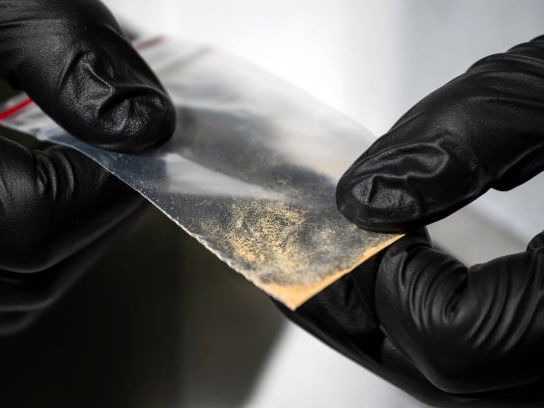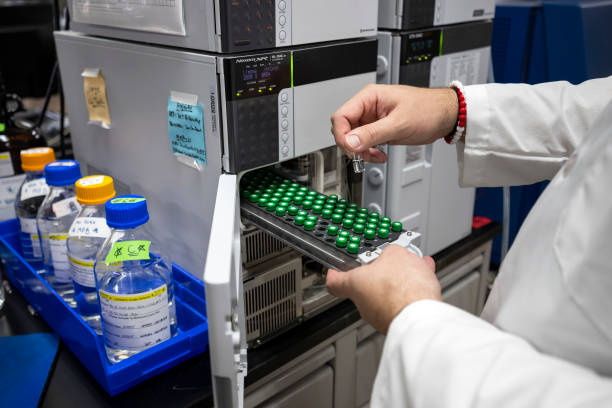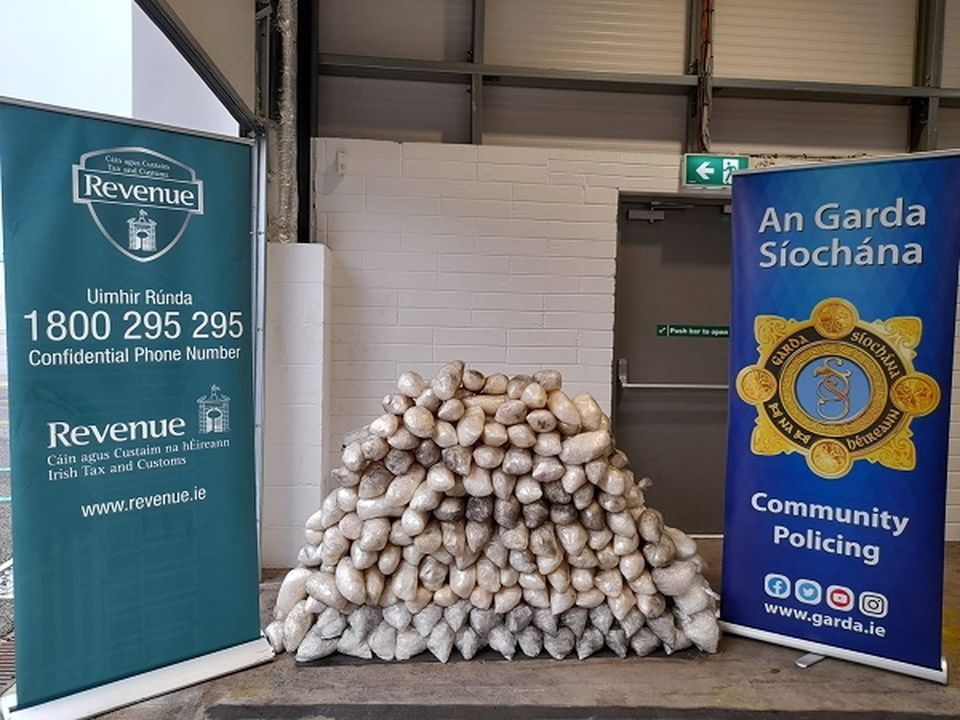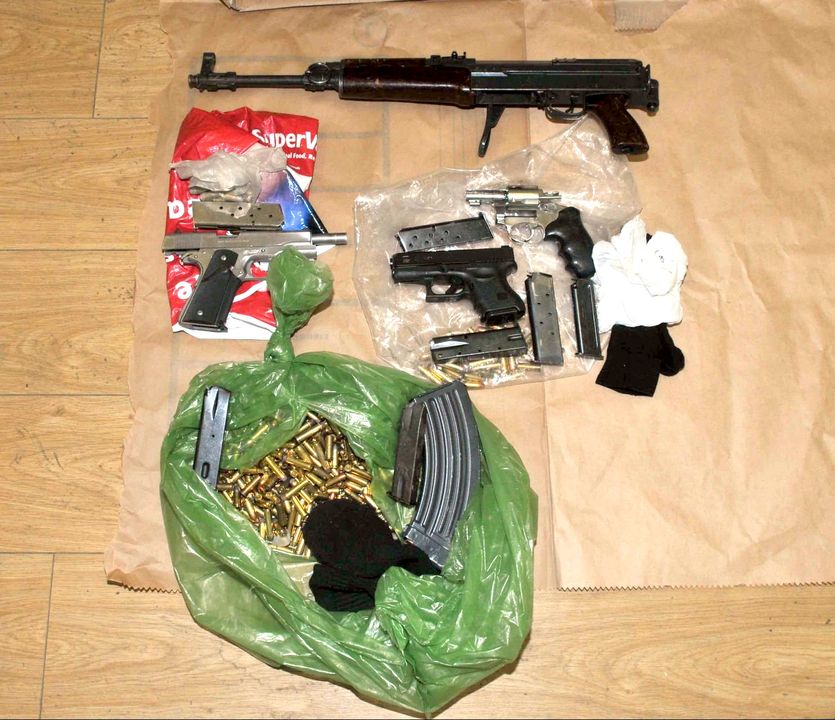World
Top garda warns Dublin is suffering ‘significant’ opioid crisis after 80 overdoses

Since late last year, Ireland is facing a crisis similar to the fentanyl problem in America.
Chief Superintendent Séamus Boland from the Garda National Drugs and Organised Crime Bureau was interviewed by Patrice Harrington on the first episode of the new Garda Podcast.
He revealed that Ireland is being swamped with synthetic opioids since the Taliban began destroying the heroin trade in Afghanistan.
“In recent months, nitazenes are appearing in Ireland, we had over 80 overdoses in just one short period,” Garda Boland said.
Since late last year, Ireland is facing a crisis similar to the fentanyl problem in America.
“Since last October we have had a significant number of overdoses in Dublin from synthetic nitazenes.
Detective Superintendant Seamus Boland. Picture: Collins
“In excess of 80 over one short period of time. Yes, it’s like fentanyl, they’re both synthetic opioids. Nitazenes are actually stronger and more dangerous.
“Nitazenes are creating huge difficulties globally, whereby in a lab, even as small as this room, if you have the expertise you can create enough drugs to supply a whole country
“With synthetic opioids, much of the heroin consumed in this country comes generally from Afghanistan.
“Within past two years since the Taliban came, they eradicated the poppy fields, 85pc have been destroyed.
“That leads to a decrease in heroin, but cartels are innovative, so chemists are employed.
“They don’t want to lose the market, so they come up with substitutes. It is clearly an attempt by the drug traffickers to continually come up with new alternatives.
“The good news is our HSE are ahead of the game, with sufficient quantities of a drug called Naloxone which counteracts the nitazene opioids.
“That had been issued by the HSE to most opioid users and service providers, it was administered to those in overdoses and saved people,” he said.
Detective Superintendent Boland gave an insight into how gardaí and other law enforcement are targeting criminals and making arrests.
Nitazene powder samples for analysis at the Center for Forensic Science Research and Education (Getty Images)
“Mobile phone technology,” Det Supt Boland responded, when asked what is the most significant thing.
“Nowadays people can control from a phone, say, a container of drugs globally.
“Unfortunately they can control who lives and dies by issuing instructions and payments.
“We see that. International co-operation is so important.
“A criminal living in Spain committing no crime in Spain, but controlling a global network into Ireland is as much a danger to them.
“And must be tackled or else that country will become used by the hierarchy and decision makers of that group.”
Cork Port meth seizure
Patrice asked Det Supt Boland about recent record drug hauls, including 2.2 tonnes of cocaine worth €157 million seized off Cork from the MV Matthew ship last year and the €33m haul of crystal meth discovered at Cork Port earlier this year.
“Ireland isn’t immune to what’s happening in other countries and Europe,” he said.
“To travel from one continent to another is so much easier, this increase in seizures, with our customs colleagues, is as we anticipated. This is the trend in Europe and also the Western coast of Africa, as global cartels are transporting coke across the Atlantic to stockpile.”
Patrice asked if there are more drugs entering Europe now than years previous.
“Difficult to answer, we read estimations of law enforcement seizing 10pc and 90pc gets in”, Det Supt Boland responded.
“Across Europe, the reality is it must be more than 10pc of what’s getting in.
“It’s obvious it’s not destined for Ireland alone. A lot of the product is for further transport.
“It is a supply / demand industry. In Ireland we see increases in the price of cocaine.
“Hopefully that’s an indication of there being less available, down to to successes and less consumption, we hope.”
Asked about the Kinahan Cartel and other groupings, Det Supt Boland said that network is a top priority.
“The Kinahans are very much a focus of our investigations, having been the primary group impacting the jurisdiction over 20 years.
“Irish society has changed so much there’s a much more diverse population and with that, as with every other jurisdiction and country, the world has become a much smaller place.
Kinahan Cartel guns and ammunition
“It’s hugely sophisticated with unlimited finances for these groups. We are totally integrated with European colleague, with many joint operations.
“We are involved with the UK crime agency and US authorities. We have meetings with Homeland Security in the morning and Dutch and Spanish police in live investigations.
“Criminals have become more armed in the last 20-25 years than in 80s and 90s.
“Weaponry has always been a part of crime groups and a lot of weaponry seized can be traced back to former conflict in the Balkans.
“We’re currently experiencing the lowest levels of murders and shootings in 20 years in Ireland.
“That’s down to law enforcement activity since 2016 and that’s our challenge to maintain those levels.
“Those groups become primary targets.”
The Garda National Drugs and Organised Crime Bureau changed their tactics nine years ago, Det Supt revealed.
“The Bureau was established in early 2015 on recommendation from Former Garda Commissioner Nóirín O’Sullivan.
“Prior to that we had a national drugs unit but also an organised crime unit. Two separate units. One for tackling drug traffickers and the other for generally armed robbery and kidnappings etc.
“The high level crime gangs in the State are engaged in drug trafficking, so there was a cross over.
“Our unit is responsible for the most violent gangs in the State.
“Firearms trafficking, armed robberies, tiger kidnappings, murder, we have remit for targeting inter-regional gangs, the cause of many burglaries and fear in Ireland,” he added.
The amalgamation of the previous two units “was a great foresight to change tactics and strategy.
“We identify the top networks and are long term focused targeting to disrupt, dismantle and prosecute,” Det Supt Boland said.













